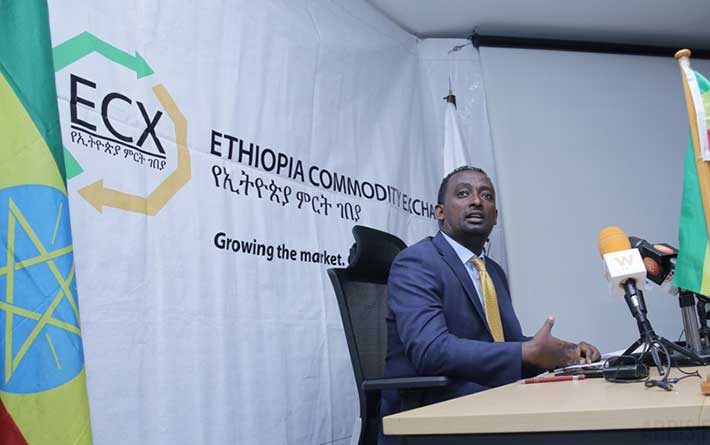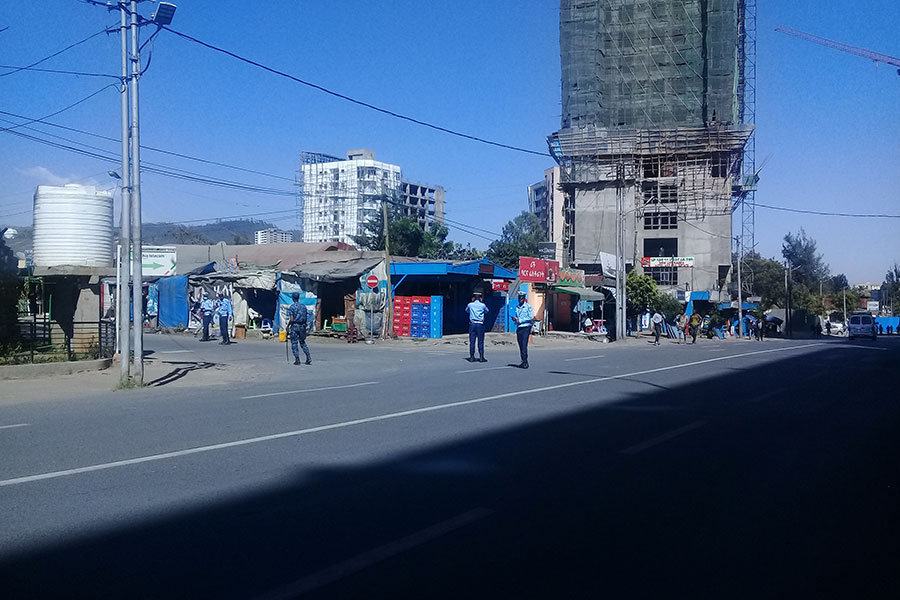
Fortune News | Aug 03,2019
Oct 21 , 2023
By Matiwos Ensermu (PhD)
In a bold manoeuvre to reimagine its logistical prowess, Africa’s most populous country is unfurling a comprehensive 10-year strategy to revamp its maritime access, enhance internal logistics infrastructures, and streamline trade practices. With an eye on ensuring enhanced external trade, these extensive reforms set the stage for Ethiopia’s ascendancy as Africa’s prime logistical hub.
Spanning a decade beginning in 2018, the Council of Ministers' ambitious plan focuses on six key strategies with a mission to boost Ethiopia’s logistical might. One of the critical components of the strategy is an emphasis on increasing port utilisation. Ethiopia largely relies on seaports from neighbouring states for its international trade operations: Djibouti, Somaliland, Kenya, and Sudan.
However, Djibouti takes the lion’s share, facilitating an overwhelming 95.3pc of import-export activities, with its strategic location being a mere 910Km from Addis Abeba. Yet, Ethiopia’s contemporary leaders do not appear content with this dependency. There is a push for joint seaport development to strengthen their bargaining power in port tariffs and other operational negotiations. This move signals Ethiopia’s determination to ensure its interests related to seaport utilisation.
The National Transport Sector Policy issued in 2020, a directive extracted from the logistics strategy, reiterates Ethiopia’s commitment to expanding inland water transport services, dry ports, and joint development of seaports.
Ethiopia is not only focusing on external ports. It is simultaneously developing its domestic logistics capabilities. The country is making a decisive move with nine dry ports, with the spotlight on the Modjo Dry Port. Located strategically, this Port dominates container service for multimodal transport, boasting a 78pc market share. The Ethiopian Shipping & Logistics Service Enterprise (ESLSE) operates these dry ports, but a transformative plan is in motion. The Port is gearing up to metamorphose into a multi-user facility, embracing private logistics service providers, a move signalling its intent to evolve into the Modjo Green Logistics Hub.
While Djibouti remains central to Ethiopia’s external trade, other ports also play a role. Despite being 937Km east of Addis Abeba, Berbera in Somaliland stands out with its capability to serve ships up to 200m in length. Port Sudan, considerably further away at 1,900Km northwest, offers an optional route for the northwestern corridor.
Then there is Eritrea, a country that holds particular promise. It remains a beacon of opportunity with two ports — Assab and Massawa. The warming of ties between the two countries adds a layer of optimism. Strategic port negotiations with Eritrea could significantly promote Ethiopia’s maritime objectives.
The global community would do well to note that the Barcelona (1921), New York (1965), and the UNCLOS-III (1982) conventions arm landlocked countries like Ethiopia with the right to access the sea. This sets the stage for Ethiopia’s leaders to negotiate sea access rights, and potentially, co-ownership of Assab and Massawa.
The world offers ample evidence of similar partnerships. Take the case of Jordan and Saudi Arabia. In 1965, Saudi Arabia recognised the Port as Jordan’s and granted it additional frontage on the Gulf of Aqabah. Or Bolivia, which, after 126 years of being landlocked, was offered a piece of Peru’s coastline. Such precedents underscore Ethiopia’s logic and rationale.
Three distinct options emerge from Ethiopia’s strategic playbook about Eritrea: Negotiate with Eritrea to own a substantial part of ports in Asab and Massawa; secure a lease, preferably spanning no less than 99 years, on significant land assets at these ports; or embark on a partnership journey to co-invest in the development of these ports.
The winds of change are not blowing just in Ethiopia. The recent African Continental Free Trade Agreement (AFCFTA) brings with it the promise of enhanced cooperation across the continent. It nudges countries to focus on regional integration, particularly in infrastructural development. Yet, it is essential to remember that Djibouti retains its crown as Ethiopia's go-to transit port with its well-developed port infrastructure and joint railway investment with Ethiopia.
Ethiopia’s leaders appear to be on a mission. Their ambitious logistics strategy underscores an intent to reshape the logistical landscape. They can position Ethiopia as a formidable player in Africa’s logistical future through domestic and international strategic partnerships and a keen eye on global precedents.
PUBLISHED ON
Oct 21,2023 [ VOL
24 , NO
1225]


Viewpoints | Apr 15,2023

My Opinion | Jan 13,2024

Radar | Feb 18,2023

Commentaries | Jul 18,2020

Viewpoints | Dec 10,2018

Photo Gallery | 175128 Views | May 06,2019

Photo Gallery | 165353 Views | Apr 26,2019

Photo Gallery | 155644 Views | Oct 06,2021

My Opinion | 136774 Views | Aug 14,2021

Dec 22 , 2024 . By TIZITA SHEWAFERAW
Charged with transforming colossal state-owned enterprises into modern and competitiv...

Aug 18 , 2024 . By AKSAH ITALO
Although predictable Yonas Zerihun's job in the ride-hailing service is not immune to...

Jul 28 , 2024 . By TIZITA SHEWAFERAW
Unhabitual, perhaps too many, Samuel Gebreyohannes, 38, used to occasionally enjoy a couple of beers at breakfast. However, he recently swit...

Jul 13 , 2024 . By AKSAH ITALO
Investors who rely on tractors, trucks, and field vehicles for commuting, transporting commodities, and f...

Oct 18 , 2025
The political establishment, notably the ruling party and its top brass, has become p...

Oct 11 , 2025
Ladislas Farago, a roving Associated Press (AP) correspondent, arrived in Ethiopia in...

Oct 4 , 2025
Eyob Tekalegn (PhD) had been in the Governor's chair for only weeks when, on Septembe...

Sep 27 , 2025
Four years into an experiment with “shock therapy” in education, the national moo...

Oct 18 , 2025 . By NAHOM AYELE
In a sweeping reform that upends nearly a decade of uniform health insurance contribu...

Oct 18 , 2025 . By BEZAWIT HULUAGER
A bill that could transform the nutritional state sits in a limbo, even as the countr...

Oct 18 , 2025 . By SURAFEL MULUGETA
A long-planned directive to curb carbon emissions from fossil-fuel-powered vehicles h...

Oct 18 , 2025 . By BEZAWIT HULUAGER
Transaction advisors working with companies that hold over a quarter of a billion Bir...